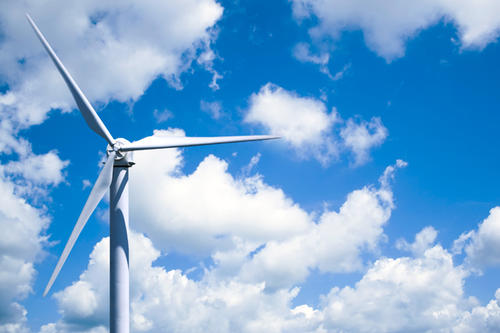
Energy Storage Paired with Solar Found to Be More Cost Effective in Minnesota Today than Natural Gas Peaking Plants
As federal policy on renewable energy is being rolled back, a new UMN-led report finds that when environmental benefits are considered combined energy storage and solar arrays can be a more cost-effective alternative in Minnesota – implementable today – to natural gas peaking plants, which are fired up only to meet peak demand.
It also shows that increasing the deployment of energy storage combined with renewable energy would help Minnesota meet its statutory goal of 80 percent carbon reduction by 2050 sooner and at a lower cost than other technologies.
The report, “Modernizing Minnesota’s Grid: An Economic Analysis of Energy Storage Opportunities,” is the result of months-long effort led by the Energy Transition Lab (ETL) at the University of Minnesota’s Institute on the Environment. Lessons learned could also be applied to other Midwest states that are in the Midcontinent Independent System Operator (MISO) footprint.
“Energy storage is a linchpin for Minnesota: It has the potential to reduce our system costs, increase electric grid resiliency, and even decrease greenhouse gas emissions in our broader coal-dependent region,” said Ellen Anderson, director of the Energy Transition Lab. “While the federal government questions the reliability of renewable energy, states like Minnesota are stepping up to show it’s possible to connect renewables and storage to reduce both costs and greenhouse gas emissions, while maintaining a reliable grid.”
Input from dozens of Minnesota energy experts laid the foundation for the analysis and final report. ETL convened more than 60 stakeholders, including representatives from utilities, energy technology companies, nonprofits and government, in two Energy Storage Strategy Workshops starting in 2016 to assess the opportunities for energy storage in Minnesota and at MISO. Participants explored whether and how energy storage could be used to help Minnesota achieve its energy policy objectives, and enable greater system efficiency, resiliency and affordability. Project collaborators Strategen Consulting and Vibrant Clean Energy conducted the use-case and system-wide modeling for the analysis, with input from MISO.
In addition to showing that storage plus solar already could be more cost effective than peaking gas plants, including environmental benefits, the analysis shows that the deployment of storage in Minnesota is projected to increase the use of low-cost renewable energy generation dispatched in MISO and to reduce the need for expensive transmission investments.
Furthermore, it shows that as standalone storage becomes more economic, it will be able to compete with and displace new gas combustion turbines installed to meet peak demand. Beyond 2022, storage was found to be more cost effective than a simple cycle gas-fired peaking plant for meeting Minnesota’s capacity needs.
Connexus, Minnesota’s largest distribution cooperative, was a participant in the workshops and is already pursuing procurement of a 20MW, 40MWh energy-storage system. It will be one of largest storage projects of its kind in the Midwest. According to Connexus, responses to its Request for Proposals have been encouraging, with prices even more competitive than anticipated.
“We have been assessing energy storage to understand its potential benefits to our distribution system and members. Just like solar PV, with continuing drop in storage pricing, it is now becoming cost effective in specific applications,” said Brian Burandt, Vice President of Power Supply and Business Development at Connexus. “While we expect broad applications will be enabled with ongoing cost reductions and performance enhancements, we believe the technology is ready today for application on our system. That will save our member-owners and Minnesotans on electric costs, but in tandem, facilitate renewable energy growth to reduce greenhouse gas emissions.”
The energy storage planning process was spearheaded by ETL and the Minnesota Energy Storage Alliance (MESA), with support from the Energy Foundation, the McKnight Foundation, the Minneapolis Foundation, the Carolyn Foundation, AES Energy Storage, General Electric, Next Era Energy Resources, Mortenson Construction, Great River Energy and Strategen Consulting.
The complete report can be previewed online, and a presentation of the report to the Minnesota Public Utilities Commission will be webcast live starting at 9:30 a.m. CST on Tuesday, July 11.
About the Energy Transition Lab
The Energy Transition Lab is a strategic initiative of the University of Minnesota's Institute on the Environment. ETL leverages the expertise of the University to envision and create the energy system of the future through collaboration with leaders in the public, private, nonprofit and community sectors. ETL helps develop new energy policy pathways, institutions and regulations, while creating a focal point for innovative solutions.
About Strategen Consulting
Strategen Consulting is a strategic advisory firm that provides insight to public sector leaders, research institutions, utilities and global corporations, helping them to develop impactful and sustainable clean energy strategies. Strategen specializes in providing independent analysis and regulatory support to help clients navigate some of the energy sector’s most pressing issues.
About Vibrant Clean Energy
Based in Colorado, Vibrant Clean Energy creates, and licenses, computer optimization software to cost-effectively configure pathways for energy systems under various political, regulatory, economic, and emission controlled futures. It also performs studies using its software for clients looking at reliability, cost-effectiveness, performance of variable renewables, and zero-emission grids, as well as computes forecasts for wind and solar power producers at high resolution to help with operations of existing facility within markets. The mission of VCE is to help facilitate universal, sustainable, and cheap energy for everyone.
- Categories:
- Agriculture and Environment





